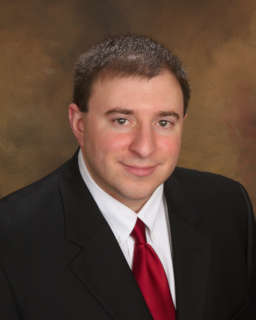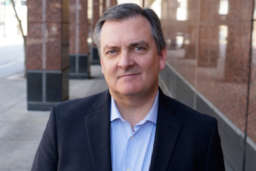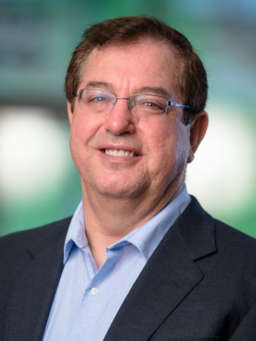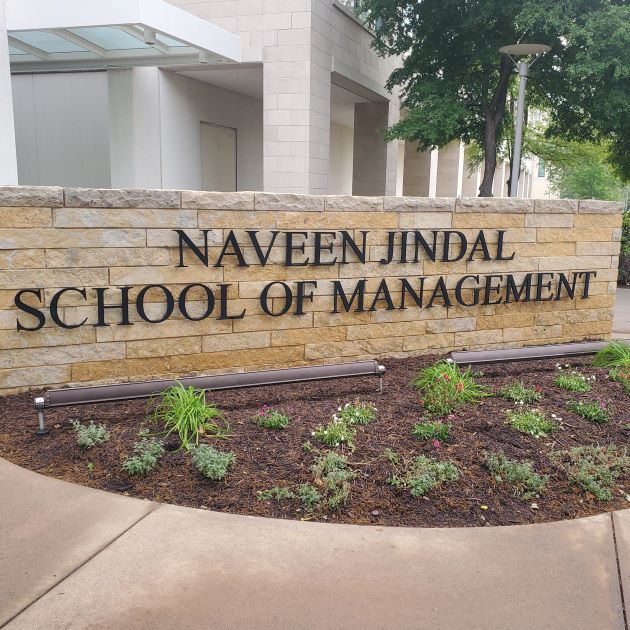
A record-breaking 900 people are registered to attend the 12th annual Fraud Summit at UT Dallas taking place at the end of the month. Presented by the Naveen Jindal School of Management’s Center for Internal Auditing Excellence, the March 30 and 31 summit is one of the top fraud conferences in the United States for professionals in the field of internal auditing.
The conference, sponsored by the Dallas Chapter of the Institute of Internal Auditors, benefits the Jindal School’s Internal Auditing Excellence program. Program students help ensure that the event runs smoothly, and this year about 60 have volunteered.
“This event benefits our scholarship endowment fund,” said Joseph Mauriello, program and center director. “This year our endowment will hit $1 million, and we’ll be able to award 60 to 80 scholarships.”
Summit keynote speakers are Toby Groves, a former fraudster turned cognitive scientist, and Dr. Mark Nigrini, an assistant professor at West Virginia University’s College of Business and Economics and an authority on forensic analytics.
“I’ve heard Toby Groves speak, and he has a fantastic story. He focuses on the psychology of fraud, and he will talk about common signs of fraud and the next steps to take to resolve it,” Mauriello said. “Dr. Nigrini will focus on Benford’s law and other analytic techniques to identify fraudulent documents.
“We also have a ‘surprise’ keynote speaker, Angela Witzany. She is the 2016/17 chair of the IIA’s Global Board and head of internal audit for Sparkassen Versicherung AG Vienna Insurance Group, a large life-insurance provider in Austria.”
Witzany chose “Audit Never Sleeps” for her theme as IIA global chairman, and it also is the title of her address.
Fraud Summit sponsors are BDO, Crowe Horwath, EY, PwC, RSM and Weaver, who each will host summit breakout sessions.
Toby Groves
The twists and turns that Toby Groves’ life has taken are mind-boggling, and not just to the casual observer.
Groves, the owner of one-time successful mortgage brokerage Groves Funding Corp., pleaded guilty in U.S. District Court to charges that he plotted against and defrauded several financial institutions and falsified his pay on income tax filings.
He served two years in federal prison, where he had a lot of time to think about how he got there.

“I never thought that anything like what happened to me would happen,” he said in a recent telephone interview. “I never thought anything would go wrong until it did.”
A prison sentence was an unlikely scenario in the life of a man who made a solemn promise to his father years before that he would never get into that kind of trouble.
Groves grew up on a farm in Ohio and witnessed his father’s heartache when his brother — 20 years older than Toby — was convicted of bank fraud in 1986.
“On a Sunday morning my dad opened the newspaper, and there’s my brother’s picture and a headline saying he’d been charged with massive bank fraud. I found my dad doubled over, sobbing. I thought he’d had a heart attack.
“My father said to me, ‘Promise me that you will never get in any trouble like this,’ ” Groves said. “And I swore to him that I wouldn’t.”
Yet, about 20 years later, Groves appeared before the same judge as his brother, being sentenced to prison for the same crime.
When he got out, he set about to learn about the psychology of fraud.
“I had thought that I understood fraud, but that was an illusion,” he said. “I was overconfident, and it led me to a bad place. When I faced challenges, I tried to save my reputation — fix a problem before anyone could find out about it. Looking back, it is clear that I was worried about what other people would think of me.”
Groves currently is completing his PhD in psychology and speaks to audiences across the U.S. on the topic of the psychology of fraud. His story has been shared on a number of media outlets including National Public Radio and in numerous professional journals, and it is studied by leading researchers and business schools.
His book, Lenses, based on his experiences on the speaker’s tour with his late son, who was autistic, is expected to be released next spring. It was his son who challenged him to become a speaker.
“He told me that if I really believed everything I’d been saying about the psychology of fraud I would be a hypocrite if I didn’t talk about,” Groves said “I never wanted to be a speaker, but now I love it.”
Dr. Mark Nigrini

Workplace fraudsters often share certain surprising characteristics, said Dr. Mark Nigrini, whose keynote address and workshop at the UT Dallas Fraud Summit will focus on Forensics Analytics and Employee Fraud.
“They are usually among the nicest people in the office, and every time they are found out, people say they never would have suspected them of doing that,” Nigrini said in a recent telephone interview. “In addition, they are usually in a position of trust at a company and, in all of the cases we deal with, about half the time, gambling is involved.”
Nigrini, who is best known for his work on using Benford’s law as an auditing and accounting tool to detect anomalies in company data, is the author of Forensic Analytics: Methods and Techniques for Forensic Accounting Investigations (Hoboken, N.J.: John Wiley & Sons, 2011), which describes tests to detect fraud, errors, estimates, and biases in financial data and of Benford’s law.
Benford’s law provides the expected patterns of the digits in the numbers in tabulated data, such as towns and city populations, or fake portfolio returns.
Nigrini’s workshop and his keynote address will focus on understanding the fingerprints of fraud numbers. He uses real-life examples and describes the program as entertaining and educational.
“In one of the cases that we discuss in the workshop, a man gambled away $6 million at a casino,” he said. “How do you gamble away $6 million and think that it’s a good thing to do? He got caught when his ex-wife made a comment to someone at lunch about how she couldn’t understand how he keeps winning at the casino. He had told her he was winning.
Participants in Nigrini’s workshop also discuss ways that fraudulent numbers differ from good numbers.
“For example,” he said, “fraudsters enjoy using round numbers. We talk about multiples of 1,000 or 1 million. Fraudsters also usually show excessive growth. If an organization is growing by 4 percent, a fraudster might say it’s growing by 40 percent.”
Fraud, he said, is an equal-opportunity employer.
“When it comes to committing crimes in general, women tend to be more law-abiding then men,” he said. “But when it comes to fraud, the number [of offenders] is split about 50/50 between men and women.”
Nigrini’s forensic work has been referenced in national media, including The Financial Times, The New York Times and the Wall Street Journal, and he has been featured in numerous radio and TV interviews, including on NBC and the Investigation Discovery Channel.





